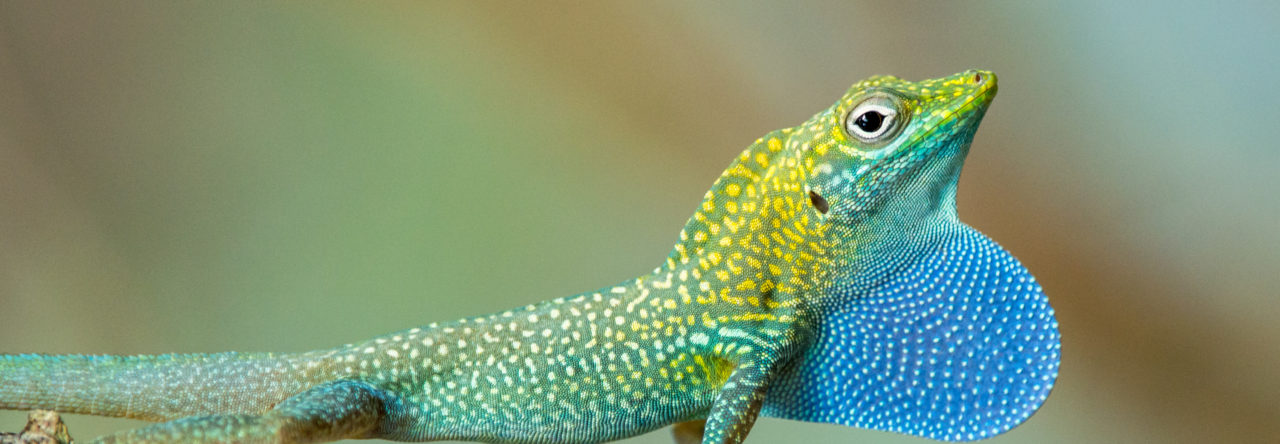We tend to think of exercise as a human activity–training our bodies in specific way to accomplish tasks, maintain strength and endurance, and live a healthier lifestyle. Wild animals exercise just as often if not more than humans, but the benefits to animal exercise have been somewhat contentious in biology. The responses to organismal exercise are very conserved with respect to evolutionary change and speciation. Those responses include an increase in performance capacity (such as speed or endurance), but often times trades-off with some other physiological trait, such as immunocompetence. With this trade-off looming, one outstanding question remains: does the exercise response enhance reproductive success and survival? Can we call this response “adaptive”?
To test this idea, Jerry Husak from the University of St. Thomas and his co-author, Simon Lailvaux at the University of New Orleans, measured the exercise response in 90 green anoles (Anolis carolinensis). They had 30 control lizards, 30 lizards trained with speed trials, and 30 lizards trained with endurance trials. They found that overall, exercise enhanced performance for all lizards relative to the controls, but training decreased the ability of a lizard to fight off an infection. They found that lizards that had been trained did not exhibit increases in movement rates, and also found that over time, trained lizards exhibited decreased survival relative to the controls! Is exercise actually bad for lizards?! Green anoles were twice as likely to survive when they were not trained, and differences in lizard body condition might be intimately linked with their probability of survival. Husak and Lailvaux are going to continue to test the idea that the exercise response confers some benefit to lizards outside of performance. Stay tuned!
- SICB 2022! - December 28, 2021
- SICB 2020: Artificial Light Keeps Green Anoles Hungry! - January 8, 2020
- SICB 2020: Variation in Anole Sperm and Testis Morphology - January 8, 2020



Leave a Reply